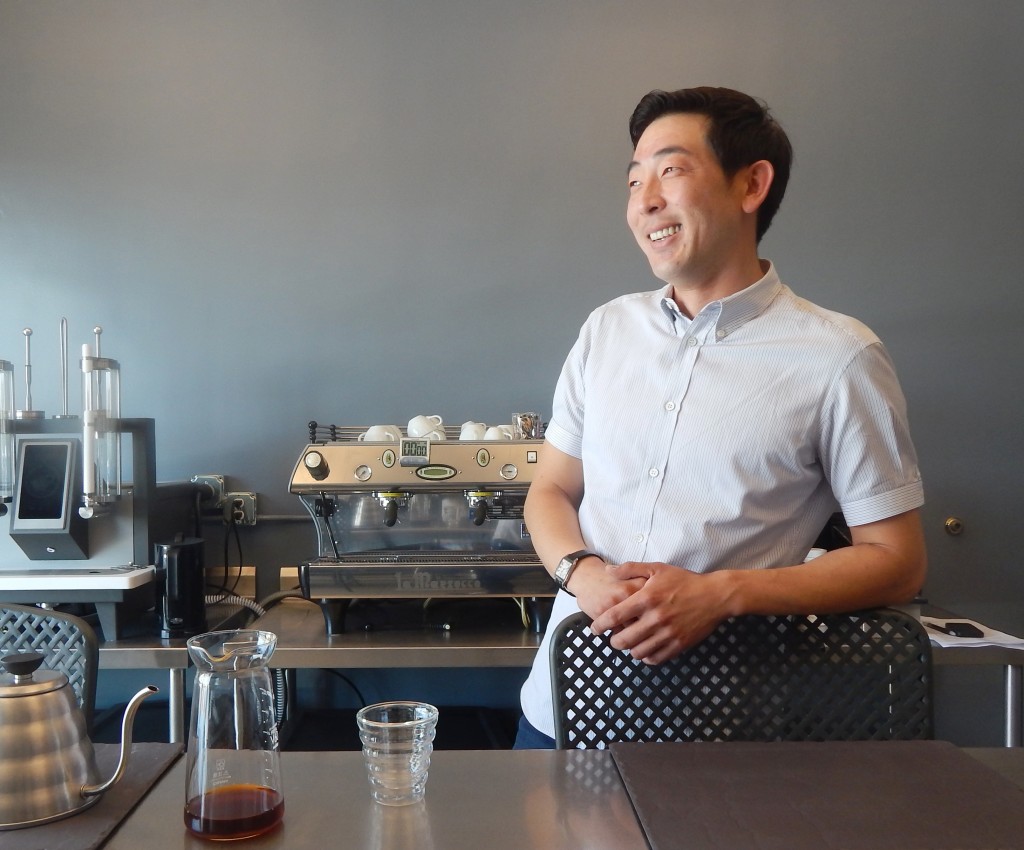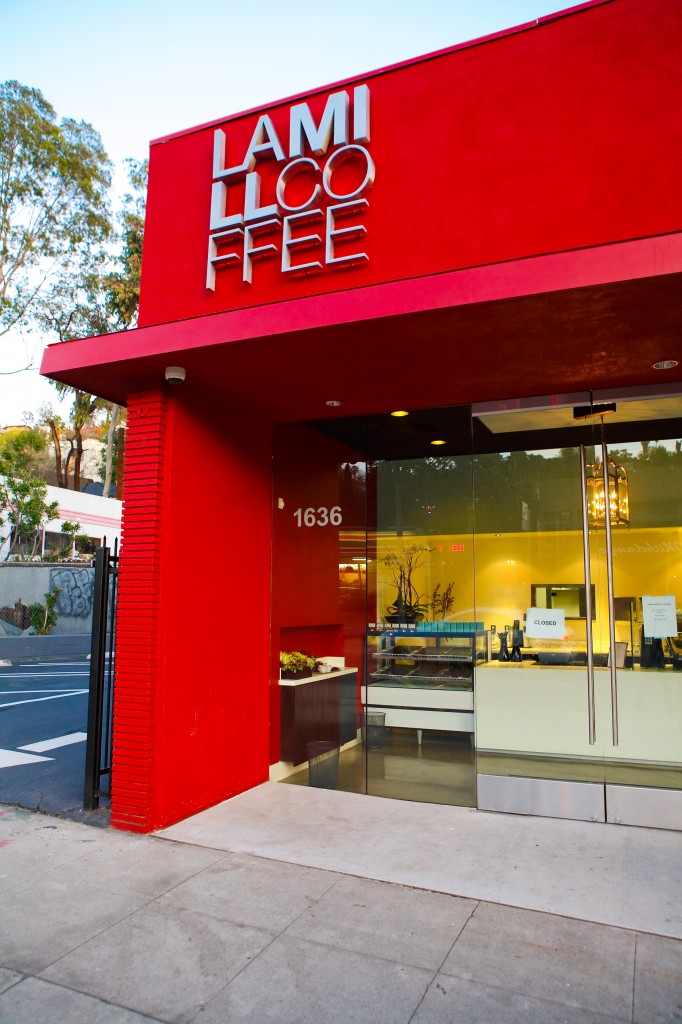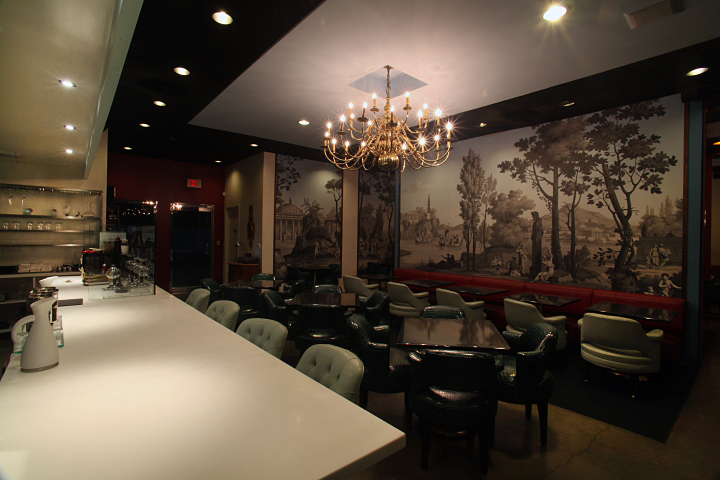- California Assembly OKs highest minimum wage in nation
- S. Korea unveils first graphic cigarette warnings
- US joins with South Korea, Japan in bid to deter North Korea
- LPGA golfer Chun In-gee finally back in action
- S. Korea won’t be top seed in final World Cup qualification round
- US men’s soccer misses 2nd straight Olympics
- US back on track in qualifying with 4-0 win over Guatemala
- High-intensity workout injuries spawn cottage industry
- CDC expands range of Zika mosquitoes into parts of Northeast
- Who knew? ‘The Walking Dead’ is helping families connect
Nobody does coffee like Lamill’s Craig Min
Recognized as “one of the top young talents who’ve changed the world of food”
His clients include Michael Cimarusti’s Providence and Corey Lee’s Benu
By Tae Hong
A 19-year-old Craig Min took 6,400 square feet of a bankrupt coffee business started by his father, started making specialty coffee, and eventually moved it into a 22,500-square-feet facility.
He then added 14,000 more across the street, and 10,000 more down the road, and — well, let’s just say Lamill Coffee is out to show the world what a good cup of joe is all about.
Min, 36, is a second-generation Korean American, a high school graduate and a world traveler whose specialty coffee is regularly ranked among the best in the U.S. and whose clients’ names, among them Michelin-starred restaurants like Providence, The Mina Group, The Patina Group, Chef Corey Lee’s Benu, roar almost as loud as his state-of-the-art German roasting machine.
Inside his Alhambra roastery, located just off the I-10 freeway, stacks upon stacks of beans — fair trade, hand-sorted, hand-graded, some of it top 0.1 percent beans, he says — sit in 60-kilogram bags.
“Within each country, there’s a micro-region that produces the best coffee. We develop relationships and bring back coffee beans, the best possible,” Min says.
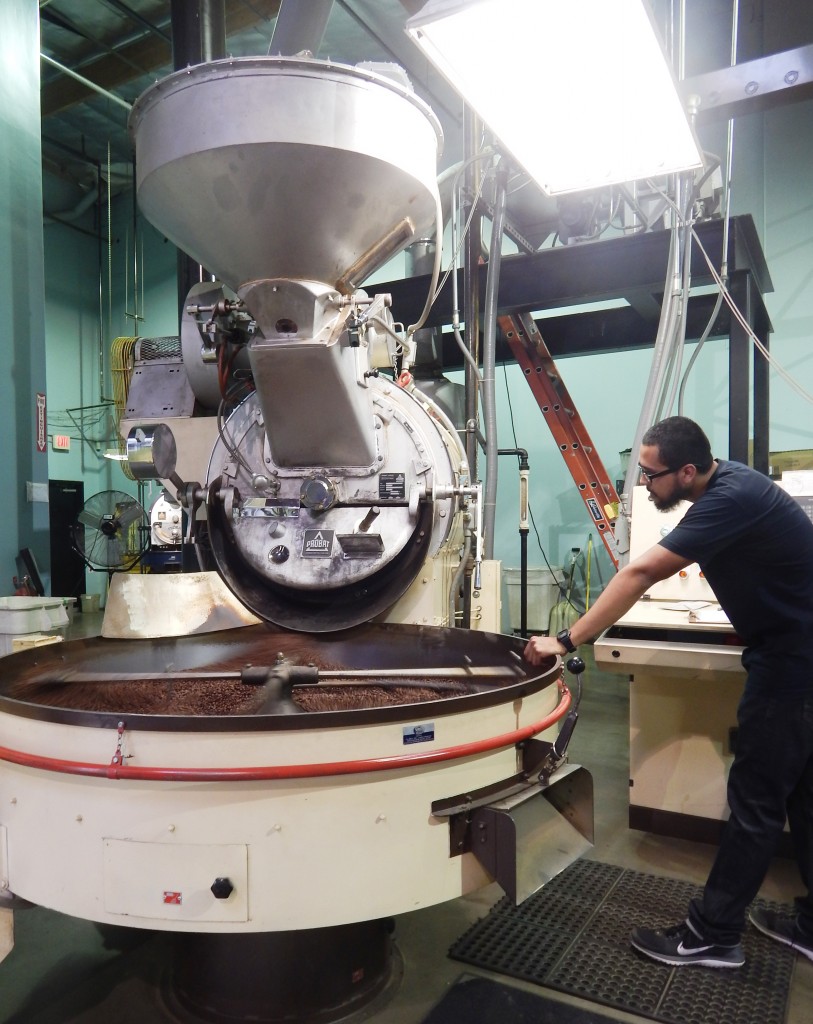
At Lamill, each bean is roasted in a giant Probat machine made by the best engineering has to offer.
The beans hail from 15 to 18 countries across the globe with a focus on the Bean Belt, from Indonesia and Africa to Central America.
Min scoops a sample from an open bag into his hand.
“Everything is uniform. There’s no broken beans,” he says. “What you see [at a farm] is 12 ladies standing next to a tray sorting these. That’s the only way you can get this kind of quality. It makes a difference in every part of the process.”
Lamill goes through about 600,000 pounds of beans a year.
Each bean is roasted in a giant Probat machine made by the best engineering has to offer. And while other coffee makers roast their beans for about 6 to 10 minutes, the average roasting time at Lamill is 15.5 minutes, he says.
Every factor is important. The down-to-the-seconds timing, the heat, the profiling, the trials.
It’s these details that have showered Lamill with a reputation as one of the industry’s finest sources of high-quality coffee, with praises in Food & Wine, Bon Appetit, L.A. Times and from noted chefs like Providence’s Michael Cimarusti, who says he “can’t imagine serving any other” at his restaurant after tasting Min’s coffee.
“How you roast the coffee has everything to do with how the coffee will taste,” Min says, voice barely audible over the overwhelming sound of the roaster.
Two men operate the machine, equipped with a laptop running a graphing program, to ensure that every roast follows its own unique recipe down to the last second.
Do you think your father ever imagined anything like this?
“At that time, it was about, one, survival. Two, it was about, hey. If I do this, can I do something that’s different? Can I do something that’s special? If you believe in something, if you put all your effort into it, I think in this country, you can make something happen. It’s the land of opportunity,” he says.
-
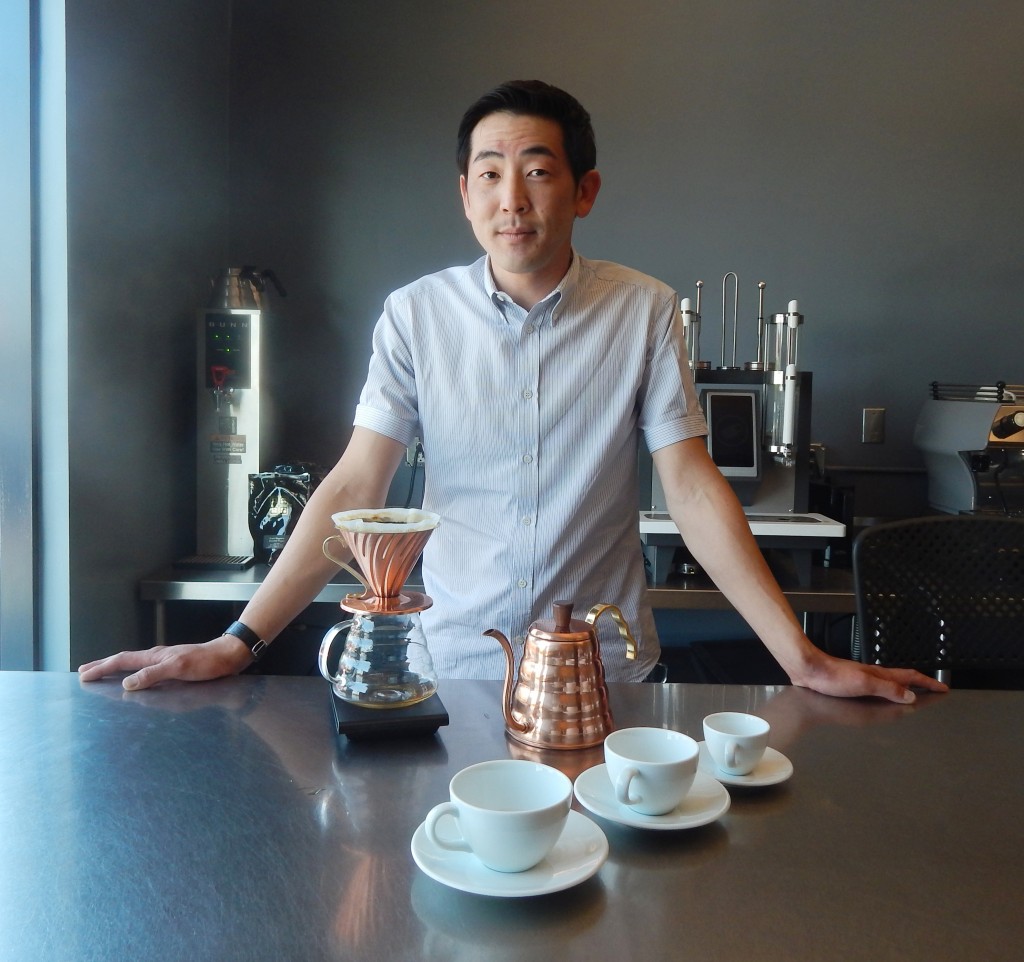
Min credits the success of his companies to a simple formula of hard work, great employees and an unswerving commitment to just doing things better.
Min’s mother initially came up with the name of the business.
“It’s always been La Mill. Two words,” he laughs. “But everyone called it L.A. Mill, for Los Angeles. So in 1998, I just scrunched it together.”
When it was first started by his father, it was a wholesale company for catering companies and restaurants.
“My dad was raised in Korea, and they came here in the late 60s,” he says. “He had a series of businesses, the last two coffee businesses. Those businesses failed.”
It may have faltered, but it was an opportunity for a young Min to learn about coffee firsthand. He learned how to roast coffee when he was 12 — the smaller roaster moved to the new Alhambra location with him when he moved in 2003 and now sits just behind the Probat — and spent his days learning the ropes of the trade.
In 1997, Min took over the crumbling business.
He says he started doing specialty coffee in L.A. when nobody was doing it. He counts fellow specialty coffee makers in town — Stumptown, Intelligentsia — as friends. After all, they all got their start in the mid- to late-90s.
“There was a few coffee places in town, but they were selling cheaper coffee, and I was selling $8 coffee. It’s not easy, you know? We needed the right audience,” he says.
An omnipresent Starbucks trend, as well as consumers’ changing views on the value of health and food, changed the game.
“If it wasn’t for [Starbucks], a guy like me would be hard to exist. They created basic knowledge and a pathway for people to justify walking in, spending $4, walking out,” he says. “Do I like what they serve? No. I think you can do a lot better. But that’s what their business is today. Their business is the environment they created. It’s these little simple, affordable luxuries that you can have every day.”
-
Sungarden Tea, Min’s tea business that shares Lamill’s lot, sprung up after he felt like he was getting stiffed by an Indian tea seller in L.A.
The product in question was Darjeeling tea, and Min knew his argument — based on tea leaves — that his second batch was from a different farm than the first would fall short against the seller.
It was about integrity. So he got upset, borrowed $10,000 from a friend of his mother’s and stepped into the specialty tea industry. He had no idea what he was getting into.
He figured it out eventually — according to Min, Sungarden is now one of only three or four companies in the U.S. that brings in bulk assortments of specialty teas, herbs and spices — and by doing so the business has become another anchor of his ever-expanding business.
The tea facility is quiet, a stark contrast to the coffee roastery next door.
In the midst of explaining the facility’s harvest times and storing requirements, fair trade and organic teas, Min stops to gesture to an unremarkable blue tin down an aisle. It’s marked as 25 kilograms.
“That’s pure organic essential bergamot oil from Sicily. This is Earl Grey, the purest form of Earl Grey,” he explains. “Chanel buys this for their fragrances. To do organic tea, you have to use organic ingredients. One drum like this is $7,000.”
But Sungarden’s not a brand like Lamill — it’s an ingredient supply company that he says has taken him all over the world.
“You start to go somewhere and you start to experience these beautiful things of other people’s cultures. And I get really excited,” he says. “But I’m more excited when I’m able to take that experience and come and share it with our customers in some way, shape or form.”
In 2008, Lamill opened its first retail store, a coffee boutique, in Silver Lake. It’s since opened a second location at the Four Seasons Hotel in Baltimore. More are coming, including one inside the Tom Bradley International Terminal at Los Angeles International Airport.
Meanwhile, Min’s coffee, distributed to more than 350 clients, continues to be served across the globe.
“You’ve gotta find what you love to do,” he says. “For me, I love people. I love experiences, I love culture, I love food, I love color, I love texture. When you see (our) retail store, that’s an exact curation of the things I’ve appreciated.”







